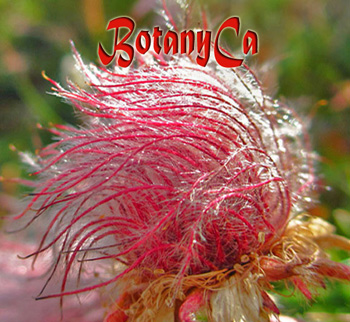Seed adventures
Being seed adventurous doesn’t mean only going into the woods and climbing mountains in search of plant seeds. It also means, trying new species from seeds and looking to improve or find new methods of sowing/germination. Wanting to avoid having to handle too many small pots, last week I sowed in the same container a few species with similar requirements (germination/growing conditions) in rectangular wood-fiber container, which was ‘planted’ in the ground in a shaded location (but it could also be kept like other pots outdoors and planted in an appropriate place only in the spring).

Container with Trillium sp., Uvularia grandiflora, Clintonia borealis…Anti-squirrel mesh and owl for good luck :)
I planted a second container with Caulophyllum thalictroides in combination with Medeola virginiana. But, one could also use individual biodegradable pots if the mixing of species is not desired.
By the time the plants will be big enough to be moved/spaced out (if necessary), the container will be decomposed. This way the seeds and seedlings will have the advantage of a good water retentive sowing mix; of course, not all of them will survive, but this is how it also goes in a natural setting. This may be turn out to be a very good method for growing those species that need two years (or more) to complete germination and have similar growing requirements, like Trillium, Uvularia, Maianthemum racemosum, Polygonatum…and also for those species that have very tiny seedlings and don’t require transplanting until the second or third year.
And to give one more idea, the featured image shows Caulophyllum thalictroides seeds sowed directed on the woodland garden floor – but this will be a whole story for later…









The woodland floor idea is very intriguing ….. can’t wait for the full story. Fingers crossed for the rest, although in your capable hands they are certainly off to a good start!
Thanks Gill. The woodland direct sowing is not a new idea. It’s been used for naturalizations projects/properties that besides the gardens adjacent to the house have large natural areas (woods, prairies)
where its easier/best to try and grow native species of the region. Of course that you have to imitate nature, ie. sow large quantities of seeds and expect just few plants to survive. But those will be
well adapted and later will start to reseed by themselves.
My first reaction was ‘what about the critters’ but then you answered that. Sounds like a good project.
I would have like to do more direct sowing at our place but as ‘woods’ we only have a few spruces and couple of deciduous trees and we have to build up soil first. But I sowed more
last year, and this fall again, at a place with a remnant woodland lot and it looks encouraging.